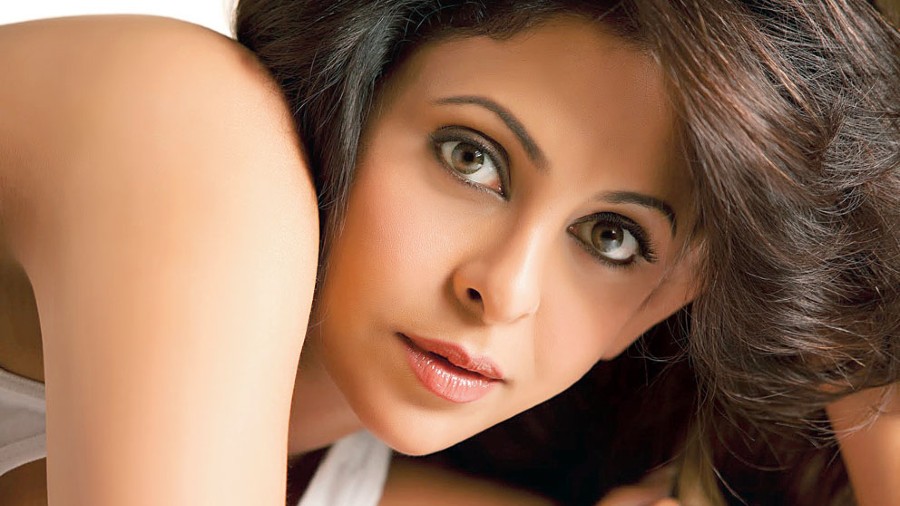As an actor, she’s one of the best we have. And now, Shefali Shah has made her directorial debut with a short film called Happy Birthday Mummyji. Playing out over 15 minutes, the short is under the banner of Royal Stag Barrel Select Large Short Films and has Shefali as its only actor. The short — which talks about a woman’s right to let go and put herself first — has opened to praise and has notched more than 750,000 views on YouTube in less than a week.
Over the years, Shefali, 49, has stood out in a host of parts, all of which she has made her own. The turning point in her career came with the huge acclaim for Delhi Crime where she walked the talk as a tough yet emotional cop. Over a long chat, Shefali opened up to t2oS on turning director, her career 2.0 and why she’s waited so long for the right parts to come to her.
Happy Birthday Mummyji really resonated with me because as women, we have kind of forgotten to put ourselves first and take out time which is our own. Did the idea and ethos come primarily from your life?
Well, a lot of it did come from my life, which you said correctly, but it’s also come from the lives of so many women around us. And it’s not just limited to the pandemic. There are times when we all have felt, ‘Oh God! I really need a break!’ This film comes from all of that.
I have chosen my life. I have chosen to be a mother, wife and a homemaker. No one has put a gun to my head. But sometimes, the responsibilities you take on get to you. Also, over time, it becomes an expectation. And no one is responsible for it but yourself. That’s because as a woman, wife and mother, you are always conditioned to say, ‘I’ll do it!’ That’s where the film came from.
Is this an idea you have been toying with for a long time and then found time to make during the pandemic?
I have been toying with the idea of directing for a really long time. But I wasn’t sure if I could take on the responsibility of a feature (film). I had been writing for some time, but during the pandemic, I finished writing two scripts. And because they were shorts, I felt I could do it. Once I had written them, I wanted to and I had to direct them. I remember telling Vipul (Amrutlal Shah, husband) that I want to play this gamble.
A lot of people make films on isolation, but then I have a completely different take on it in Happy Birthday Mummyji. It doesn’t necessarily always have to be depressing and sad.
Isolation can also be liberating in a way...
Absolutely! There is a difference between being lonely and being alone. Unfortunately, many of us think they are synonyms of each other, but they are not.
Watching your film reminded me of the time when I had spoken to the late Alyque Padamsee on the thought behind the iconic girl-under-the-waterfall Liril ad. And he had told me, ‘That’s the only time, those 10 minutes under the shower, that a woman has completely to herself. That’s her freedom’. What, for you, is the idea of freedom, especially for a woman?
I am really glad to know about the reference of the Liril girl, but after you are a mother, you don’t even get that! (Laughs) When my sons were younger, whenever I would be in the washroom, they would invariably be knocking on the door! It was so beautifully done on their part... they just knew when exactly I would be in the washroom and would come banging on the door. It was like a screenplay, but it took me by surprise every time!
But yes, what my idea of freedom is... it’s abandonment. And when I say ‘abandonment’, I don’t mean abandonment of relationships, responsibilities or of people you love. It’s the sense of abandonment that comes from within... it’s a feeling of letting go. It doesn’t have to be under a shower, it doesn’t have to be when you are having your morning coffee and have those 10 minutes to yourself. It doesn’t have to come from taking a holiday. It can just come from a sense of letting go.
As women, as I was telling you sometime ago, there are a lot of responsibilities we bring upon ourselves. I am a homemaker and I am very proud of it. I am a very hands-on homemaker. But there are things that I take on myself which I later feel that, ‘Zaroorat nahin hain’. I come home from shooting the whole day and then I decide I want to cook a meal for the family. It’s my choice, though I feel there is no need to do it. But it’s always like, ‘No, let me do something nice for my family’. What we need to do is let go.
Wanting to cook a meal for your family at the end of a long day of shoot is, as you said, your choice. But is it also conditioning?
I can choose to cook a meal because I don’t have a gun pointing at my head. And I don’t have to do it every day. If I did it every day, it would probably be conditioning. If I had to do it every day, I wouldn’t want to enter the kitchen! Hats off to all those women who cook three-four meals a day. Food became a very big thing during the lockdown and I remember one day having lunch with my husband and kids and they asked, ‘So what are we having for dinner tonight?’ And I was like, ‘You guys just ate!’ (Laughs) So yes, I enjoy it because I don’t have to do it on a regular basis.
I have realised that being a homemaker is the toughest job in the world. There is no instruction booklet, you don’t get paid, you don’t get holidays, you can somehow never satisfy so many members of your family, you are dealing with a lot of incompetence around you and you never retire.
Farhan Akhtar had recently told us that he admires those who can direct and act at the same time. What was it like directing yourself on debut, especially given that you are the only actor in the film? I also remember you telling me that as an actor on set, you never see the monitor, but as a director you obviously had to...
Yes, I never see the monitor as an actor. I acted in it because I didn’t have another actor! But yes, I knew the story so well, it was so personal that I couldn’t see anyone else doing it but me. And I was available at my discretion and I could demand what I wanted from myself.
It wasn’t easy. Being a director is a huge, huge responsibility. As an actor, I can go on set, pay attention to my work and come back. But that doesn’t happen when you are a director. So many things go on on a set simultaneously... not just creatively, you also have to look at the logistics bit of it. The time constraints, the money constraints, all of that.... This was done immediately after the (first) lockdown opened. The safety measures had to be in place....
That’s now an added worry on every set...
For sure, but I must say that all my producers are doing a remarkable job. Whether it’s Human (co-starring Kirti Kulhari) or Darlings (with Alia Bhatt), they are extremely conscientious. So yes, when I was directing, it wasn’t easy. Also, I lost time. When you have to do a shot and go and check it each time in the monitor, you lose that much time. I had just two days to finish it, and yet I wanted it to look the way it did, I wanted it to feel the way it did. I treated it like a big film... I didn’t want to cut corners anywhere, every small thing was looked into. And as if being the actor and director on this film wasn’t enough, I was also very interested in stuff like, ‘Oh, this napkin should be like this’. If you ask my HoDs, they will basically tell you, ‘Oh, she was a pain to work with!’ (Laughs) But I wanted to do it, even though I went batshit crazy!
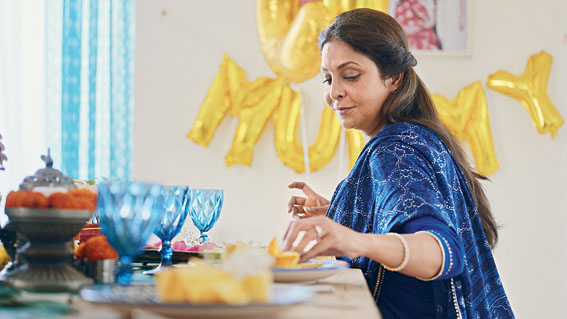
Shefali in her directorial debut Happy Birthday Mummyji Sourced by the correspondent
Is this a stepping stone to directing a feature film, sooner rather than later?
I definitely, definitely want to direct. I have a couple of scripts that I want to work on. I put a lot of prep into Happy Birthday Mummyji. And this is just a short. But that’s the way I work. I went on set completely ready. Every single thing was on point. I put in two months of prep for a 15-minute film. Going by that, if I decide to direct a feature, I will probably have to go off the grid for a year or so!
Honestly, I don’t have the time for that now. Touchwood, I am doing some incredible work as an actor. Finally, I am getting to do the kind of work I always wanted to do. Finally! So I don’t think I can take off right now.
What do you think of the short as a medium? A few years ago, I absolutely loved Neeraj Ghaywan’s Juice in which you did a phenomenal job...
That’s one of my favourites too. I think it’s an incredible medium. People think it’s easy to make a short, but it’s not. If anything, it’s tougher. You are trying to tell an entire story in 15 minutes. You don’t want to compromise, but a short doesn’t give you great budgets or the time to create your vision. It has to be crisp and well made, and that goes for anything in today’s times. When you make something, you know that international audiences will see it. And that kind of effort needs to go into it.
There was a time while making this film when I said that if I can’t bring alive my vision, I don’t want to do it at all. But the reach of a short is incredible. You can watch it on your phones, tablets, anywhere. You can watch it as and when you feel like. If the film is good, it will grow by word of mouth. Juice was so good that people still revisit it. It, along with some other shorts, broke the myth that you need a star, that you need a Friday release, or you need box office. It’s an incredible medium that pushes you and challenges you.
If we go a little back, what made you want to become an actor?
For a long time, it was a by-the-way kind of job. In college, I started doing theatre and then I got offered some serials and I started doing those. For a very long time, I didn’t know it was my profession (smiles). Suddenly one day I realised, ‘Okay, I do this every single day of my life, I get paid for it and if I get paid for it, this must be my job!’ It was another matter that I was only getting paid some 200 bucks for a show. I never thought I would be an actor. In fact, I wanted to be everything else but an actor.
Many decades in the acting business later, you are finally getting to play protagonists and have author-backed parts written for you. Do you think that this has been a long time coming or do you feel that your maturity and experience as an actor now prepares you better to play these parts?
Well, it’s both. This is what I have dreamt of, this is what I always wanted. But it did not come to me for many years. And hence, I became very selective about the work I did. And finally, with Delhi Crime, it changed. It really changed! I am doing the kind of work I love now.
If you look back, there is a lot of my work that people appreciate tremendously. But I am someone who is always dissatisfied with my work. If I look back at the work I did 20 years ago, I will obviously see that my perception and approach were different then. Everything changes... your growth, your understanding, your ability to forgive and let go, your ability to see what is important and what isn’t. So everything I look at, from where I am standing today, I will feel, ‘Arre yaar, yeh karna chahiye tha’.
I wish I had done this kind of work earlier. But I am glad it’s come now. That’s because my work pattern has changed. As an actor, Delhi Crime was my learning curve. I changed as an actor with Delhi Crime. But while I am glad with what I am doing now, I still have serious doubts about myself... every single day that I go on set. Every single day!
But why is that?
That’s because I don’t know if I know it as an actor (smiles). It works for me. If I reached a point where I thought I knew it all, I would invariably settle into complacency. Self-doubt, questioning myself, being dissatisfied to a certain level... it really pushes me. For me, it’s like starting all over again... it’s like first day of school....
Do you revisit your work?
I don’t! I see it once and that’s it. I am not too hot about seeing myself on screen, let me put it that way (smiles).
But everyone wants to see you... and your eyes! Your eyes are always a point of discussion...
(Laughs) You know I had a random thought a few days ago that what happens if I go blind?! I want to be known for the characters I play. A compliment for me is when someone says, ‘Shefali hasn’t done this part... Manju was just like Shefali’. That is what I strive for... that I have to become different people.
As far as my eyes are concerned, I was just telling someone the other day that maybe we should put cello tape here (pulls at the corners of her eyes). Because that will really change not just the way I look, but I also will not be able to use my eyes so much. And that could be very interesting as an actor. But no one is interested yet in stapling my eyes!
At 49, how do you perceive the debate around ageism that has long plagued Bollywood?
In terms of the kind of work coming in, it’s definitely changed for the better. Also, OTT has really opened up horizons. Shows and films are being written with women protagonists. Even before OTT came in, it had started changing. Say in terms of films like Tumhari Sulu or Lipstick Under My Burkha or Parched.... In the ’60s and ’70s, there were a lot of films that were women oriented... whether it was a Bandini, a Mandi, an Aradhana or an Aandhi. Then came a phase when the woman became a prop, all she needed to do on screen was look pretty. But then, it’s changing now, definitely. OTT has given us content where every character is strong, it’s not just about a hero or a heroine.
You just spoke about how taking to direction was a gamble for you. Would that also apply to your acting career, especially now?
I have always played a gamble! It’s not that I wasn’t offered work through the years. I was, but I chose to say ‘no’. I remember my kids telling me, ‘Mom, you could be so popular! You could be working every day’. But I said that doesn’t work for me. If a role, a film or a character doesn’t hit me in my gut, I am not going to do it. Earlier it used to bother me, but then I reached a place where I understood that this was a choice I was making. And if it meant sitting at home for a year or two, I would choose that over just going to do a job. I love what I do too much... so I will wait for that part, I will wait for that film. And now I am lucky that I have got these opportunities. For all you know, I would have been waiting for the rest of my life!
Apart from Delhi Crime, what would you count as the turning points in your career?
It would first have to be Monsoon Wedding and Satya because that’s how people started seeing my work. Without them, I wouldn’t have been here at all. If we talk about recent years, it would be Delhi Crime, Juice and Once Again. Once Again (co-starring Neeraj Kabi) put me in the romantic lead bracket. Juice showed me as I was. Those three became a turning point because before them I had just done Dil Dhadakne Do. I had played a much older woman there and I was then getting offered similar kind of roles in the same age bracket. And I said, ‘no’. Even Ajeeb Daastaans was a turning point... I had never looked like that. It was a conventional heroine kind of look... I never had a part to look like that, plus my age is a factor. But that doesn’t undermine what else I have done. Every film has been a growth of a kind. Even if I didn’t learn what to do, I learnt what not to do (smiles).
You just mentioned Dil Dhadakne Do and that made me recall the fact that you played mother to Akshay Kumar, who is older than you, in Waqt more than a decade-and-a-half ago...
That was a film I chose. I loved the part and the story. My thought at that time was that as an actor, one has the freedom to play so many different kinds of personalities... caste, creed, religion, age. In this, I could play with age, which was challenging for me. It may not have been the best decision of my life (smiles), but I did it. And now when I look back, I feel there is no point mulling over something that’s done. You can’t waste time and energy evaluating a situation and its results so many years after it’s happened.
Do you constantly fight being pigeonholed even now?
Till a few years ago, yes. But now I am getting a wide array of roles... central characters, parallel leads... Human is completely different from Darlings, I have never done something like what I do in both. I am now in a position where I carry a film or a show. And most importantly, I am playing my age.
Filmography
SATYA (1998)
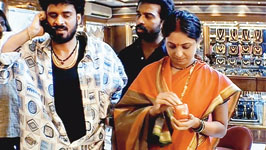
Manoj Bajpayee as Bhiku Mhatre may have delivered a career-defining role in this Ram Gopal Varma film, which is still considered seminal in the Indian gangster genre, but the moment we looked into Shefali’s eyes — playing Bhiku’s wife Pyari — we knew that this was an actor for the long haul. Those energetic moves in Sapne mein milti hain were a plus.
MONSOON WEDDING (2001)
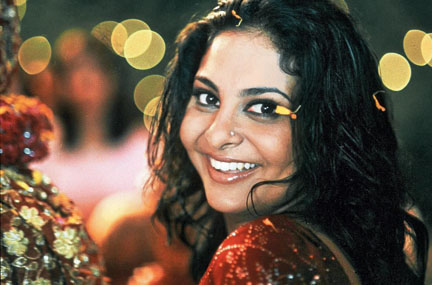
The Mira Nair film boasting an eclectic ensemble cast benefited hugely from Shefali’s presence. As Ria, the woman with a secret in the middle of a big, fat Indian wedding, Shefali was a revelation, holding her own (and often outclassing) far more seasoned actors. Those eyes — especially in the confrontation scene that defines the film — brought in both power and pathos.
WAQT (2005)
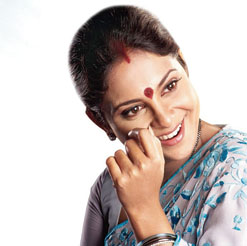
In an industry already ageist, few actresses of Shefali’s age (she was 33 then) would have taken the gamble to star opposite Amitabh Bachchan and play mother to Akshay Kumar (five years her senior), but Shefali aced the part, delivering both emotion and grit in this family tearjerker directed by husband Vipul Amrutlal Shah.
THE LAST LEAR (2007)
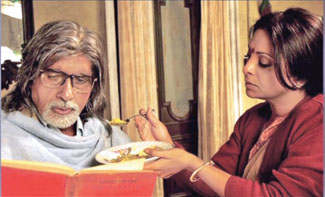
This Rituparno Ghosh film — front lined by Amitabh Bachchan and starring the likes of Arjun Rampal and Preity Zinta — had Shefali leaving a mark even in a relatively shorter role. A performance strong enough to earn her the National Award for Best Supporting Actress that year.
DIL DHADAKNE DO (2015)
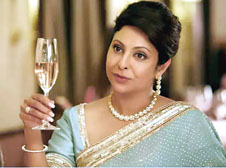
Shefali stepped into a part first offered to the likes of Tabu and Madhuri Dixit in this big-budget Zoya Akhtar film about a rich, dysfunctional family. As a woman both struggling against patriarchy but also enforcing it in a way and effortlessly playing mother to Priyanka Chopra and Ranveer Singh, Shefali was, as expected, top notch.
JUICE (2017)

Masaan man Neeraj Ghaywan crafted a thought-provoking tale about gender-specified roles, male entitlement and patriarchy through the character of Shefali’s homemaker, who silently rebels. And aah, those eyes!
ONCE AGAIN (2018)
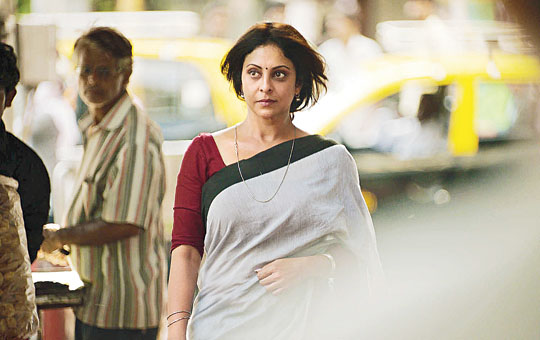
It was her silences that spoke volumes in this film about a middle-aged woman who finds love and companionship once again in this film that is a hidden gem on Netflix.
DELHI CRIME (2018)
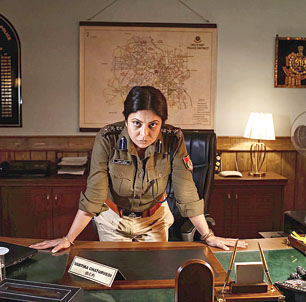
The show that changed things for Shefali — more than two decades after she first came in — was this powerful and moving retelling of the Delhi gangrape of 2012. As top cop Vartika Chaturvedi, Shefali didn’t miss a beat, leading from the front and shouldering the Netflix show that won an International Emmy last year. Now waiting for Season 2, and more importantly, Shefali in Season 2.
AJEEB DAASTAANS (2021)
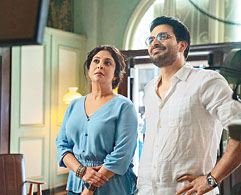
Shefali and Manav Kaul, both consummate actors, played off each other beautifully in this bittersweet tale of love and longing, which was one of the best bits of this Netflix anthology.
This short was effective in presenting Shefali’s acting skills in a new dimension.
Shefali’s She-list
Fleabag
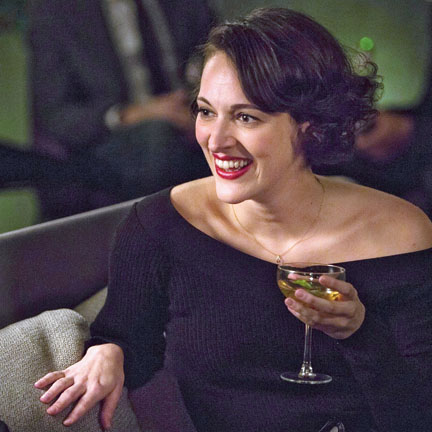
I want to be Fleabag! Phoebe Waller (Bridge) is just... oh my God! What a brilliantly written show and performed so well. I keep saying in all my interviews, ‘I want to do Fleabag! I want to do Fleabag!
I want to do Fleabag!’
Nomadland
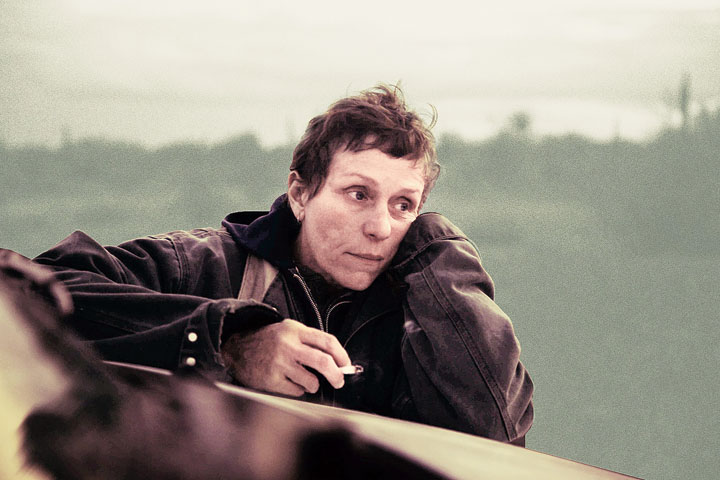
What a delicate film. You need to be in that space and that frame of mind to be able to watch and appreciate it.
Mare of Easttown
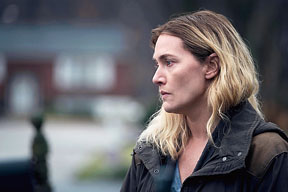
Kate Winslet is just so fabulous!
The Crown
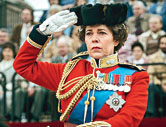
I am completely in awe of Olivia Colman. You see her in Broadchurch, The Crown... she’s just so brilliant.

